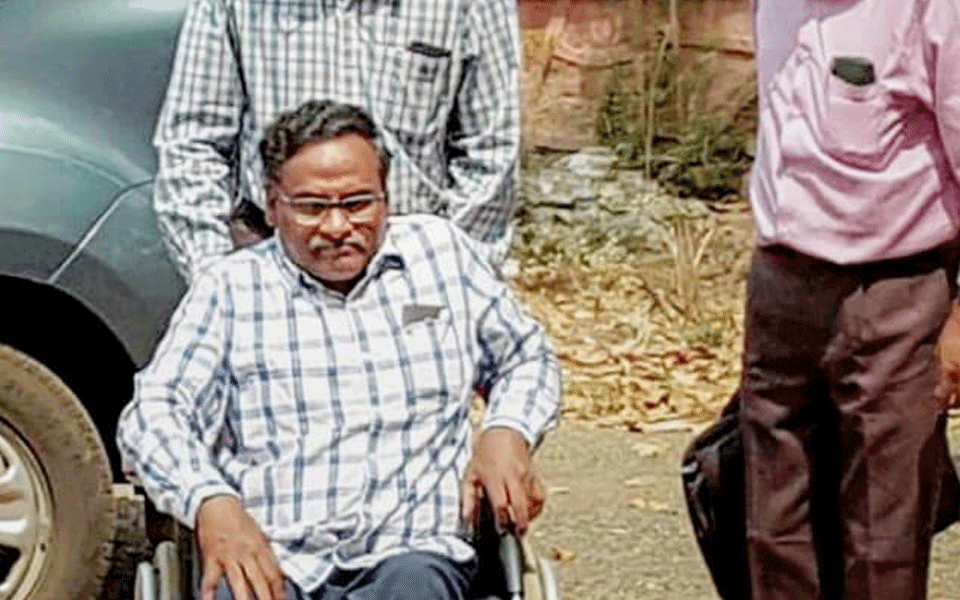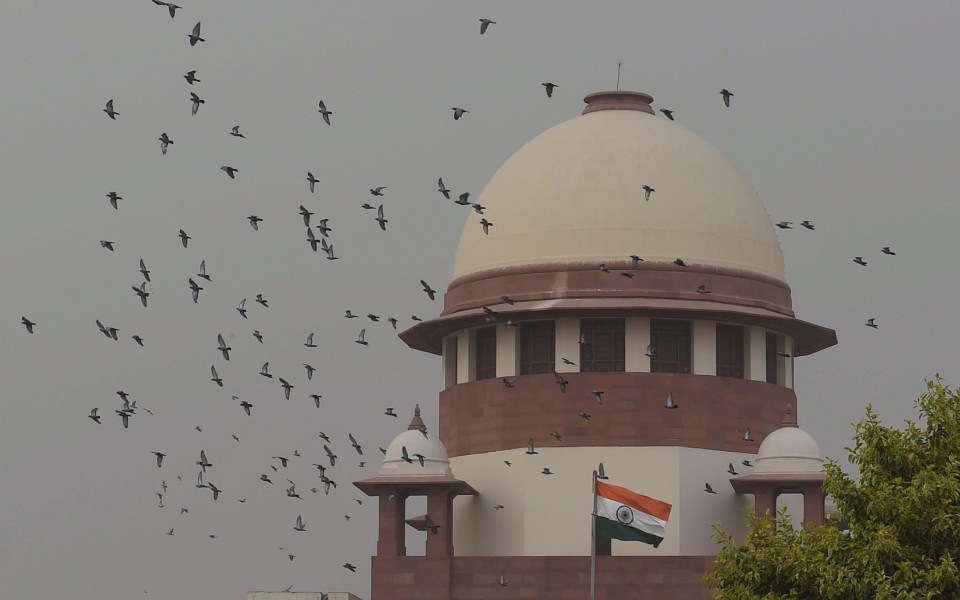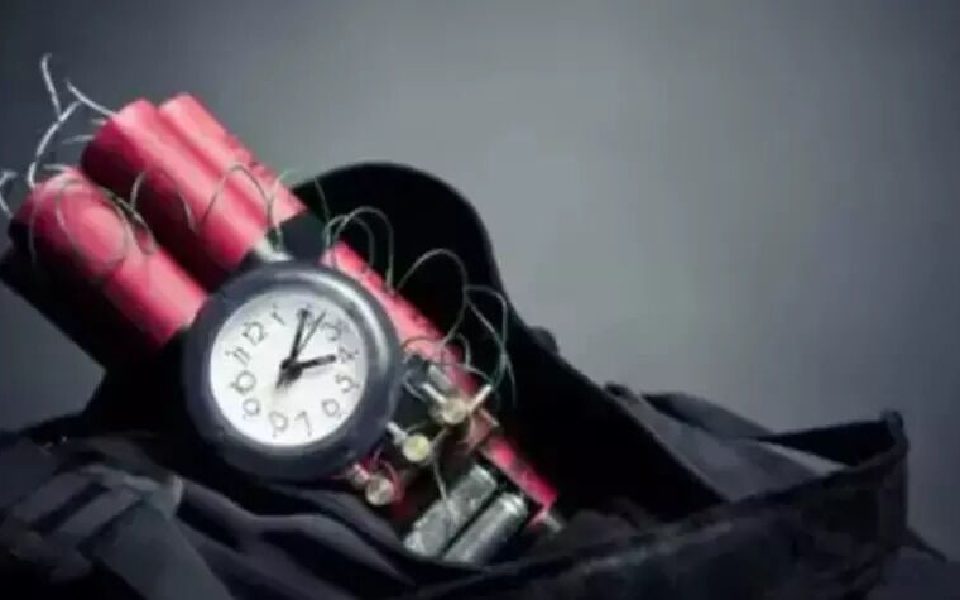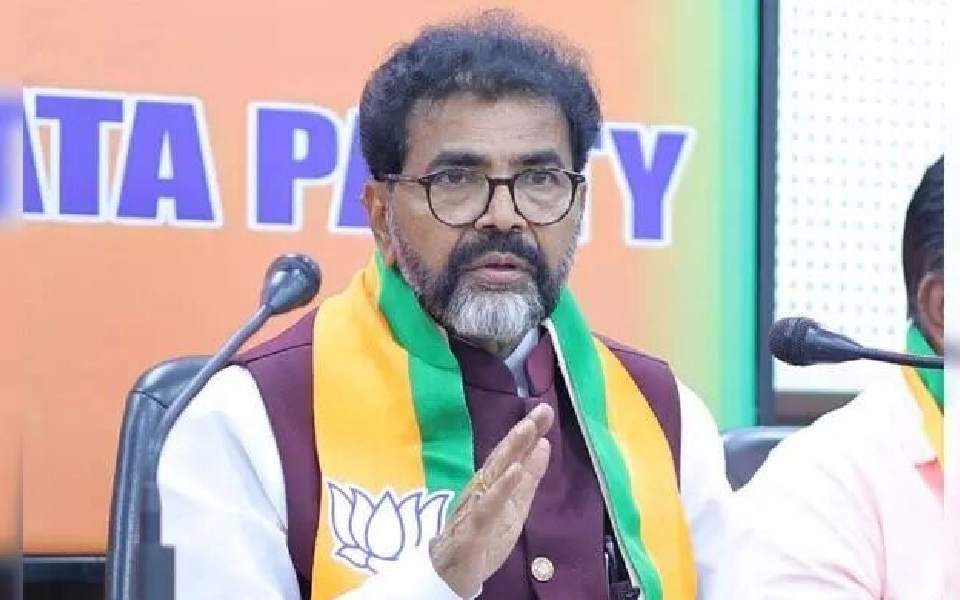New Delhi (PTI): Former Delhi University professor G N Saibaba's wife A S Vasantha Kumari on Friday thanked his supporters and the judiciary following his acquittal in a Maoist links case.
The Nagpur bench of the Bombay High Court acquitted Saibaba on Friday and ordered his immediate release from jail.
A division bench of justices Rohit Deo and Anil Pansare also allowed an appeal filed by Saibaba challenging a 2017 trial court order convicting him and sentencing him to life imprisonment.
Saibaba, who is wheelchair-bound, is currently lodged at the Nagpur central prison.
"We had faith that he would be acquitted because he did not do anything wrong. There was no crime and no evidence. I am thankful to the judiciary and all those who supported us," Vasantha Kumari told PTI over phone.
The couple's daughter is currently pursuing MPhil from Jamia Millia Islamia.
Asked how they coped with his absence in the last eight eight years, Vasantha Kumari said, "Don't ask! There was a lot of struggle and patience involved in the last eight years. It was difficult for Sai also since his health deteriorated and he lost his job."
In March 2017, a sessions court in Maharashtra's Gadchiroli district convicted Saibaba and other people, including a journalist and a Jawaharlal Nehru University (JNU) student, for alleged Maoist links and for indulging in activities amounting to waging war against the country.
The court had held Saibaba and the others guilty under various provisions of the stringent Unlawful Activities (Prevention) Act (UAPA) and the Indian Penal Code (IPC).
Let the Truth be known. If you read VB and like VB, please be a VB Supporter and Help us deliver the Truth to one and all.
New Delhi, October 18, 2024: The Supreme Court on Friday ruled that child betrothals—a tactic often used to evade the Prohibition of Child Marriage Act (PCMA)—violate fundamental rights, including freedom of choice, autonomy, and the right to childhood.
A three-judge Bench led by Chief Justice of India D.Y. Chandrachud, along with Justices J.B. Pardiwala and Manoj Misra, emphasized that the anti-child marriage law was unclear on child betrothals. The Court urged Parliament to outlaw the practice and categorize children whose marriages are arranged as “minors in need of care and protection” under the Juvenile Justice Act.
The judgment noted that despite international frameworks like the 1977 Convention on the Elimination of All Forms of Discrimination against Women (CEDAW), India has not fully addressed the issue of child betrothals. Under the PCMA, girls under 18 and boys below 21 are considered children, and child marriage is both a crime and a social evil.
Chief Justice Chandrachud pointed out that confusion persists regarding the intersection of personal laws and the PCMA. The Court acknowledged that the government had submitted a “note” suggesting that the PCMA should take precedence over personal laws, citing conflicting High Court judgments. However, the note was not backed by formal documentation, and the matter remains unresolved, with an Amendment Bill introduced in December 2021 still pending in Parliament.
The Court also broke new ground by addressing the impact of child marriage on boys. The judgment highlighted how patriarchal expectations, misinformation, and peer pressure push boys into committing violence against their child brides. “While girls are disproportionately affected, the right to childhood belongs to all genders,” Chief Justice Chandrachud observed.
“The intent of POCSO is to protect children from sexual harm, while child marriage institutionalizes sexual abuse by subjecting minor girls to exploitation,” the CJI stated. He further noted that child marriage reduces children to objects, imposing burdens such as compulsory heterosexuality and reproductive expectations, which deny them the freedom to explore their sexuality and personal choices.
The Court issued several guidelines, including:
• Introducing culturally appropriate sexuality education in schools.
• Launching a ‘Child Marriage Free Village’ campaign, similar to the ‘Open Defecation Free Village’ initiative, with the involvement of community leaders.
• Establishing an online portal under the Home Ministry for reporting child marriages.
• Creating a compensation scheme under the Ministry of Women and Child Development for girls who opt out of child marriages.
• Allocating an annual budget to prevent child marriages and support those affected by the practice.
The verdict was delivered in response to petitions by NGOs, including the Society for Enlightenment and Voluntary Action, which raised concerns about the persistence of child marriages despite nearly two decades of the PCMA. The Court warned that child marriage poses a direct threat to laws like the Protection of Children from Sexual Offences (POCSO) Act.





